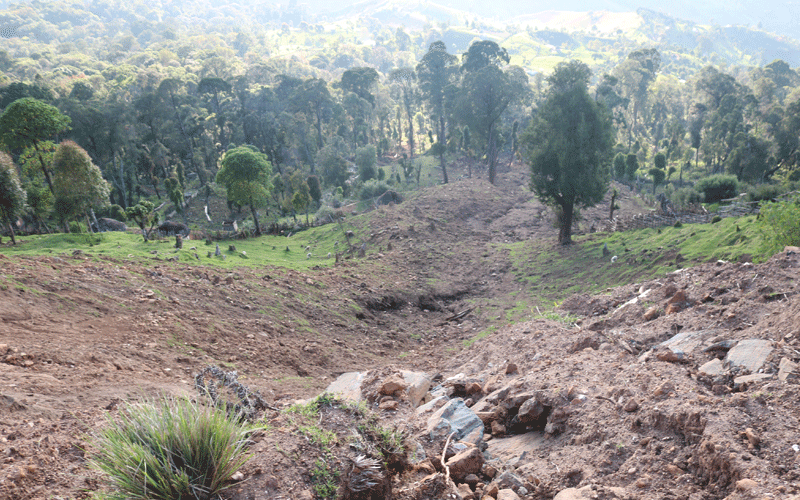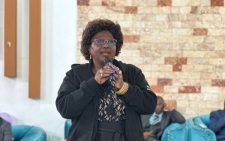Hovering spirits: The roaming ghosts of West Pokot

For the community, vital rituals need to take place so the deceased can rest in peace and for the living to be saved from any misfortune, but modernity and missing bodies of the dead are making life difficult for many
Traditionally, just like in many African societies, death is a subject discussed in hushed tones among the Pokot.
When it came to burying their dead, a few considerations were taken into account.
From status of the person to the time of death, all these variables would influence the manner in which the deceased’s body was handled.
The most senior member of the society would receive a sendoff befitting their status, but there are those who would be left in the open.
In fact, most warriors killed during cattle raids or any other battle, were left to rot in the bushes, where they fell.
To date touching a corpse is not only frowned upon, but also highly discouraged as it might interfere with the spirit of the dead, who are either resting in peace, or haunting its killers.
What is certain among the Pokot is that when an individual dies, they go to the next world, because life is cycle.
Hovering spirits
Last year, heavy rains that caused flooding and landslides befell West Pokot county, leaving scores dead.
That fateful Friday evening was just like any other day for the residents of the two highly affected villages, Nyarkulian and Muimo, but the heavy rains that came as the night progressed will forever be wounds in their hearts.
They lost husbands, wives, mothers, fathers, children, livestock and a lot of other properties. Most are still trying to find their feet, having recently buried bodies discovered in the debris.
However, for some people including Samuel Kaptuin, 46, who lost three relatives, there are those who have refused to rest in peace, and spirits are hovering around like dark clouds.
“There are those who died during the landslide and in the floods. We never buried them and neither did we see how they died, because we haven’t seen their bodies.
I have heard my relatives speak about hearing their voices, especially at night,” he says.
For Kaptuin and other elder members of the community, such a phenomenon has been tricky to handle as the werkoyons (traditional seers) are yet to conduct the cleansing ceremony known as Kilokunogh po karun, where members of the affected families are cleansed from any misfortune that might befall them.
“As a community, we are at a crossroads because there are some cultural rituals that need to be observed.
Now we have modern religions that have come with a lot of complications,” says 86-year-old Mzee Krop Ngalimany.
According to the octogenarian, the traditions of the Pokot dictate that a dead person does not share a night with the living in the same house.
“Burial ceremonies take place in early hours of the morning or late hours of the day, but with the growing influence of Christianity and other religions, the practices are getting diluted and scrapped off as time goes by,” says Mzee Krop who refuses to have his photo taken.
He gives reason to it saying that the last time his picture was taken by a white man, his feet ended up cracking.
“I remember when we had such misfortunes, the seers would warn us in advance, so we could offer sacrifices and slaughter goats, pour libations (honey, beer and tobacco) to appease the gods and the ancestors. Even when something this bad happened, we had them cleanse the whole clan or village,” he adds.
Sad memories
For the residents, the fear of confronting the spirits should be dealt with immediately as the unrest is now unbearable, for the people who are still mourning the departed.
“We know of a family which lost seven members. How do you tell the father that the spirit of his kids rest in peace, yet he only buried four?
“A week ago, my neighbour whose home was swept away said he woke up to a cold hand pushing him aside, asking him to move,” adds the octogenarian.
For Kipel Yaranyang who lost the seven children during the tragedy, he has resolved to never build his house in the same area again.
“Coming back here brings not only sad memories, but I also feel that the misfortune that happened here might return. In fact, I never buried my dead kids in this land,” he says.












